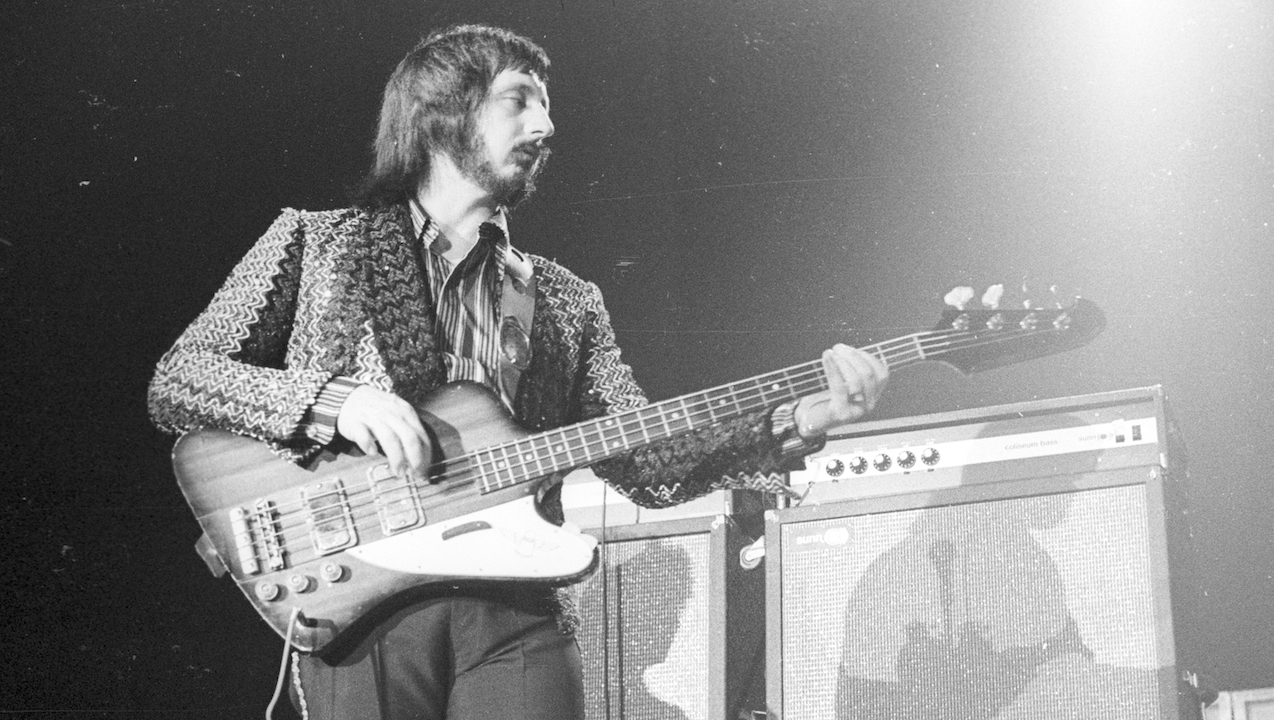"Bewildering technique that went way beyond any standard root/5th ideas": Listen to John Entwistle’s isolated bass on My Generation
“You can’t talk about classic bass playing without mentioning The Who and Live at Leeds”

All the latest guitar news, interviews, lessons, reviews, deals and more, direct to your inbox!
You are now subscribed
Your newsletter sign-up was successful
John Entwistle, affectionately nicknamed ‘The Ox’ for his stoic onstage profile, revolutionised the role of the bass guitar. In the face of Keith Moon’s drumming antics, Roger Daltrey’s whirling microphone and Pete Townshend’s windmill rhythm guitar, his signature bass style was one of the musical cornerstones that made The Who such an influential force.
Recorded at Leeds University in 1970, the isolated rhythm track below is of The Who’s must-listen hit, My Generation. Despite the original Live at Leeds album featuring just six songs, Entwistle’s short answering phrases in his solo section were enough to inspire a whole generation of bass players.
When the album version was released in 1965, bass guitar solos were completely unheard of. In fact, until 1966, records produced in the UK sounded virtually bass-less compared to their American counterparts. The Beatles had riff-based songs like Day Tripper, but Entwistle’s bewildering technique and guitaristic approach went way beyond any standard root/5th ideas.
“Entwistle is a fantastic player,” the late Chris Squire of Yes once told us. “In the early days I was compared to him, but then I did nick a lot of his stuff! I told him that too! He added something to bass that we were all waiting for.”
Entwistle’s solo on My Generation is based on a G minor blues scale. The live version varies slightly from the album version, but as John later said on his Hotlicks Master Class, “You need to improvise a bit to stop yourself going mad.”
An avid bass collector, John’s gear was basically everything and lots of it. He used a ‘Fenderbird’ for years, which was a Fender Precision-necked Gibson Thunderbird. He was equally fond of an Alembic Explorer and a huge Warwick Buzzard (later made in carbon fibre by Status Graphite). Interestingly enough, Entwistle had originally intended to record My Generation on a Danelectro bass, which had a more piano like sound, but eventually he opted for a newly purchased Fender Jazz Bass strung with La Bella strings.
His ongoing quest for tonal power would also lead to the development of roundwound strings, which he developed with Rotosound in the '60s. It's also argued that Entwistle invented the 4x12 speaker cabinet while using Marshall amps. He later enjoyed a long relationship with Trace Elliot and Ashdown Engineering.

“You can’t talk about classic bass playing without mentioning John Entwistle,” Rudy Sarzo told BP. “What I loved most about him was that he had a unique tone – a sound that was his and nobody else’s. He knew what his position was in the band and he knew what the songs needed to sound good, and he played like no one else was playing – at the time or since then. John Entwistle’s bass playing is mandatory listening for anyone who wants to understand the bass guitar.”
The Who Live at Leeds is available to buy and stream.
All the latest guitar news, interviews, lessons, reviews, deals and more, direct to your inbox!

Nick Wells was the Editor of Bass Guitar magazine from 2009 to 2011, before making strides into the world of Artist Relations with Sheldon Dingwall and Dingwall Guitars. He's also the producer of bass-centric documentaries, Walking the Changes and Beneath the Bassline, as well as Production Manager and Artist Liaison for ScottsBassLessons. In his free time, you'll find him jumping around his bedroom to Kool & The Gang while hammering the life out of his P-Bass.


